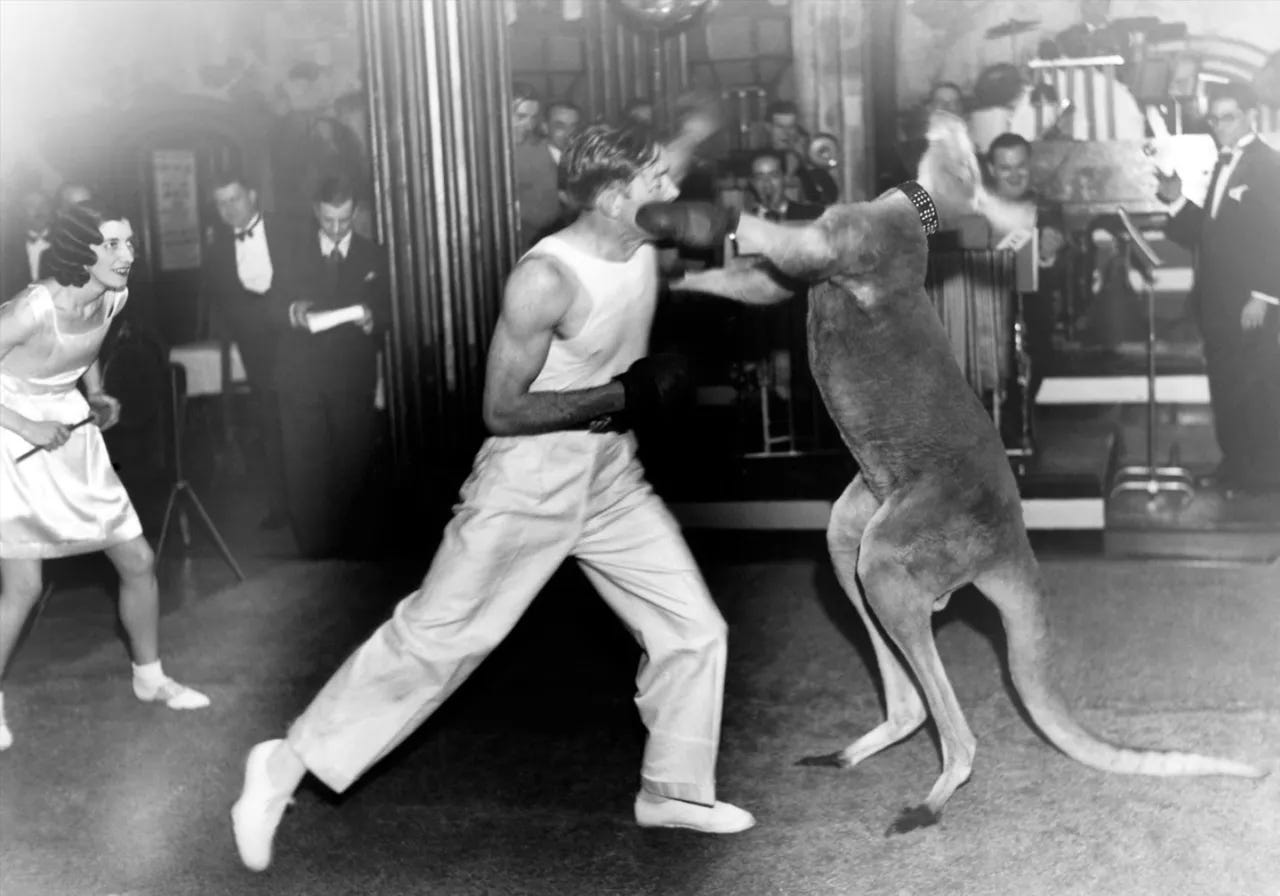Fun With Planks
In this week's Rundown, a balance board makes planks less awful (really), what you think you know about your Achilles tendon is wrong and active video gaming benefits those who hate the gym.
The Rundown
Fun With Planks. The Plankpad is a German-designed wooden balance board that you hold on to while you’re in a plank pose. What sets it apart from other balance boards is the Plankpad app, which has a collection of games that prompt you to make slight moves from side to side to avoid objects in your way. The “connection” between app and board happens when you put your phone on the front of the board and it senses when you move from side to side.
If dodging debris isn’t your thing, the app also has a workouts feature that adds moves to traditional plank sets and a 30-day checklist, with a daily exercise pattern. Day one begins with “30 Sec. REST 20 Sec. REST 15 Sec.” and finishes on day 30 with 90, 85, and 80 seconds.
Your Achilles Tendon is Not Dead After All. A recent study in Frontiers in Physiology suggests that your Achilles tendon is not, as previously thought, inert after the age of 17 and may in fact be able to heal and repair itself. Led by Freddy Sichting of Chemnitz University of Technology, a research team in Germany took 40 pairs of identical twins and had them fill out a questionnaire about their sports habits and physical activity. Each person was classified as active or inactive based on a starting point of one hour of training per week and the stiffness of their Achilles tendon was determined by a device that rings it like a bell and measures the vibrations.
In pairs where one twin was active and the other was not, the active twins had tendons that were 28 percent stiffer, which suggests that long-term training does change the structure of the Achilles tendon. The participants were not elite athletes, although the active twins did participate in their main sport for an average of 15 years.
The scientists also found that the twins who played sports that involved an aerial phase with both feet off the ground, like running and basketball, had much stiffer Achilles tendons than those who participated in sports without an aerial phase, like cycling and swimming, which means that jumping and landing are important triggers for adaptation.
While scientists continue to disagree over exactly how tendons respond to different types of training, what role they play in how efficient you run and why they get injured, the takeaway of this study is that tendons, while slow to adapt, are not simply lifeless connections between your calf muscles and your heel bone. The more we learn about how to train them, the less likely they are to cause us pain.
Games+Exercise=Good. New research from the University of Georgia has found that exergaming, or active video gaming, has positive health impacts for those who don’t want to hit the gym. Published in the International Journal of Sport and Exercise Psychology, the study (read the abstract) followed 55 people whose daily physical activity was below the recommended 150 minutes per week.
The participants were randomly put in either an exergame group (where they could choose from games including Just Dance, Kinect Sports, and Zumba Fitness World Party) or a group that took traditional aerobics classes three times a week for six weeks.
For both groups, the researchers measured physical activity and exertion with accelerometers, heart rate monitors and a scale that determines how hard the participants thought they were working out. The subjects’ enjoyment of their workouts and their motivation for exercising, among other things, were also assessed using a variety of scales.
While the group who took aerobics classes worked out harder, the exergamers had a better time and felt more in control of their exercise routine. According to Sami Yli-Piipari, a co-author of the study and an associate professor in the Department of Kinesiology, this sense of satisfaction and autonomy has the potential to lead to more consistency over time. “When an individual feels autonomous, they’re more likely to exercise or exergame on their own. They feel ownership over what they are doing, and they’re doing it for themselves, so it’s more likely they will keep up the activity.”
Replay
This week’s vintage moment in fitness culture is brought to you by a kangaroo boxer in Paris, 1932.
Photo credit: Keystone-France/Gamma-Keystone/Getty.




